
DELHI- In 2024, Indian airlines experienced unexpected growth with the addition of over 100 new routes, improving connectivity nationwide. Airlines like IndiGo (6E), Air India (AI), and SpiceJet (SG) played a pivotal role, boosting accessibility to tier-II and tier-III cities and strengthening the aviation infrastructure.
This expansion, backed by government initiatives such as UDAN, democratized air travel, fostered regional development, and opened opportunities for business and tourism. Major players introduced domestic and international routes, marking a transformative year for the sector.
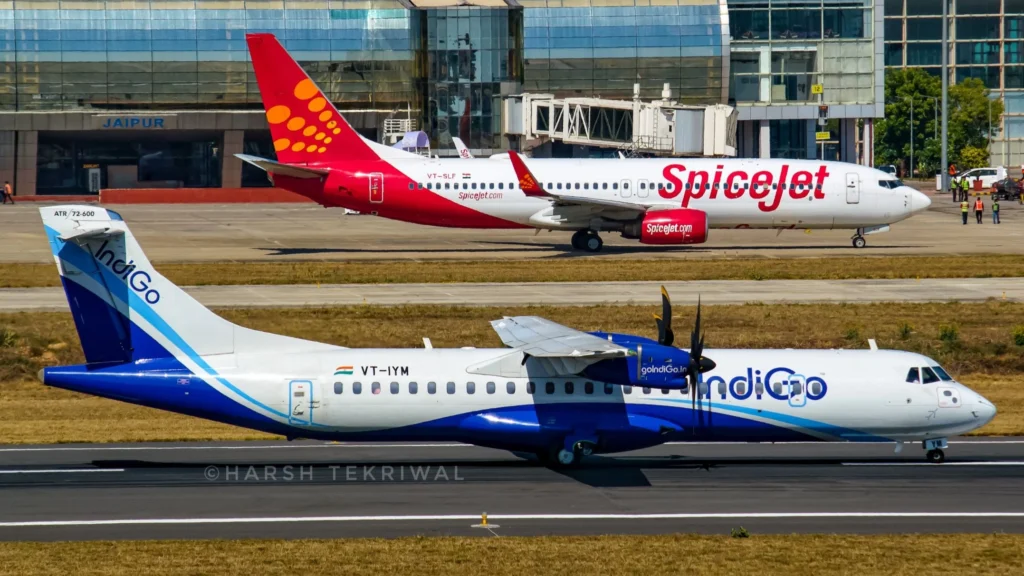 Photo: Photo: avgeekwithlens/ Harsh Tekriwal
Photo: Photo: avgeekwithlens/ Harsh TekriwalIndian Airlines Added 100 New Routes
The Ude Desh ka Aam Naagrik (UDAN) scheme has been the backbone of India’s aviation revolution. Launched in 2016, the initiative picked up significant momentum in 2024, connecting underserved regions and making air travel accessible to the masses.
This year saw an accelerated pace of growth, with airlines expanding their networks to tap into the demand from smaller cities.
For instance, IndiGo (6E) introduced daily flights connecting tier-II cities such as Delhi (DEL)-Rajahmundry (RJA) and Delhi (DEL)-Darbhanga (DBR), while also bolstering its international network with routes like Bengaluru (BLR) to Langkawi.
They also introduced routes in Northeast India, connecting smaller cities like Agartala (IXA) and Dimapur (DMU).
Similarly, SpiceJet (SG) leveraged regional events like the Kumbh Mela, introducing special flights connecting Prayagraj (PYG) to major cities, ensuring seamless travel for pilgrims.
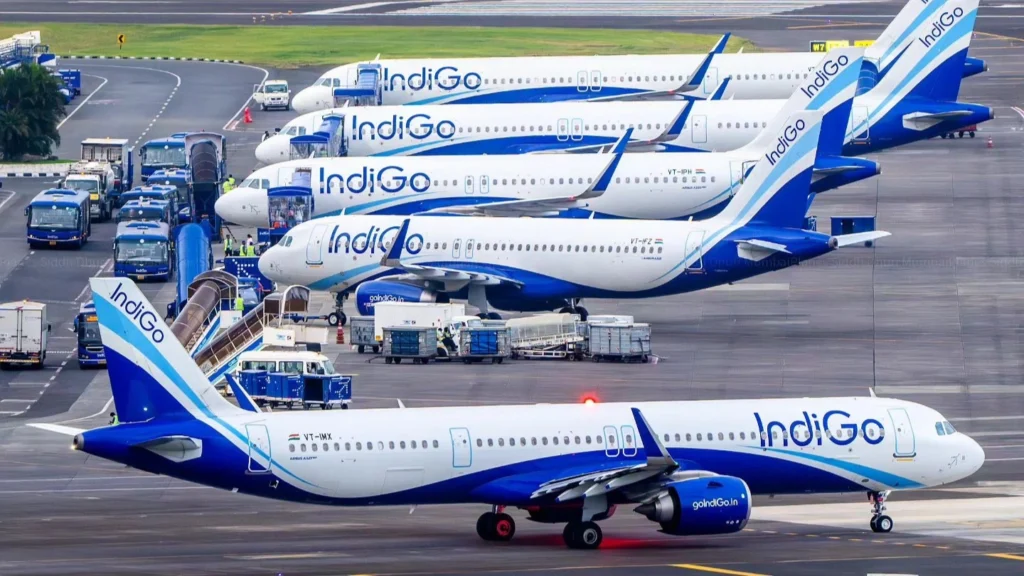 Photo: Siddh Dhuri | MumbaiPlanes
Photo: Siddh Dhuri | MumbaiPlanesExpanding Domestic and International
The expansion of domestic and international air routes in 2024 has significantly broadened the scope of travel options available to Indian passengers.
IndiGo Airlines’ (6E) Milestones
IndiGo led the sector with several significant developments, such as Bengaluru (BLR) to Puducherry (PDY).
Expanded operations to Northeast India, by adding flights like Agartala (IXA)-Dibrugarh (DIB). Opened international connections to the U.S. from December 2024.
Furthermore, IndiGo (6E) became the first airline to operate from Ayodhya’s newly inaugurated Maharshi Valmiki International Airport (AYJ), showcasing its commitment to enhancing regional connectivity.
Air India (AI) and Air India Express (IX)
Air India (AI) added direct flights from Bengaluru (BLR) to Port Blair (IXZ), enhancing access to this tourist hotspot.
The Air India Express (IX) contributed with daily flights from Vijayawada (VGA) to Bengaluru (BLR), addressing the growing demand for regional connectivity.
SpiceJet (SG)
SpiceJet launched 38 new domestic routes that connect pilgrimage sites across India such as flights to Prayagraj (PYG) which enables connection to Kumbh Mela. These routes have made it easier for travelers to reach their destinations within India and fly to international locations.
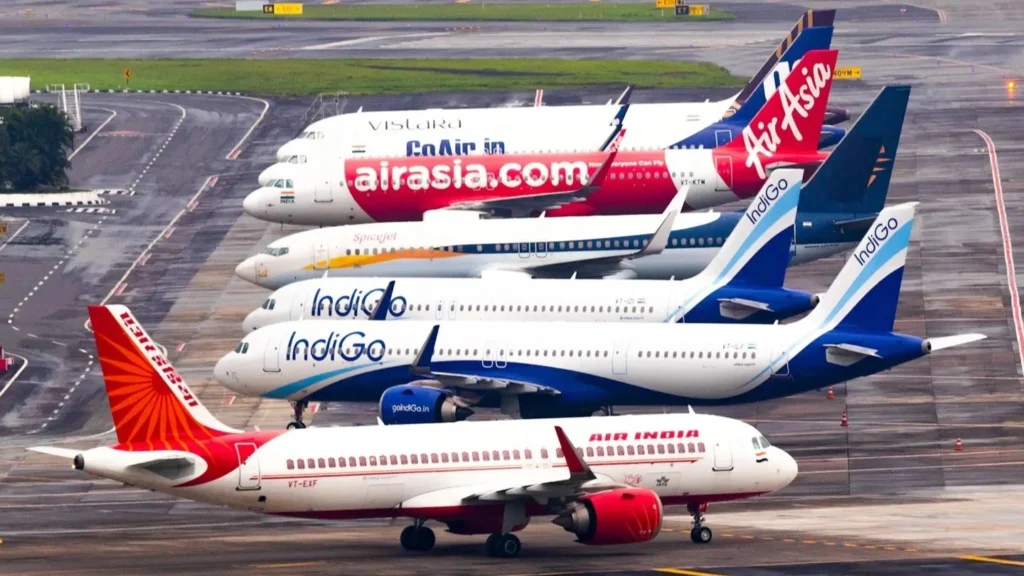 Photo: Siddh Dhuri | MumbaiPlanes
Photo: Siddh Dhuri | MumbaiPlanesEconomic Growth
Airlines expanded routes in 2024, connecting more Indian cities to the national network.
New flight routes reduced travel time between cities and created business opportunities in smaller towns. Tourism has seen significant growth, particularly in culturally rich cities like Ayodhya (AYJ) and Prayagraj (PYG), because of the new routes introduced by Indian airlines.
Additionally, the aviation sector has created employment opportunities, both directly in airports and indirectly through associated industries like hospitality and logistics.
Airlines are contributing to equitable economic development by targeting underserved markets.
The increased affordability of air travel under the UDAN scheme has also allowed more people to participate in the economy, bolstering regional growth and development.
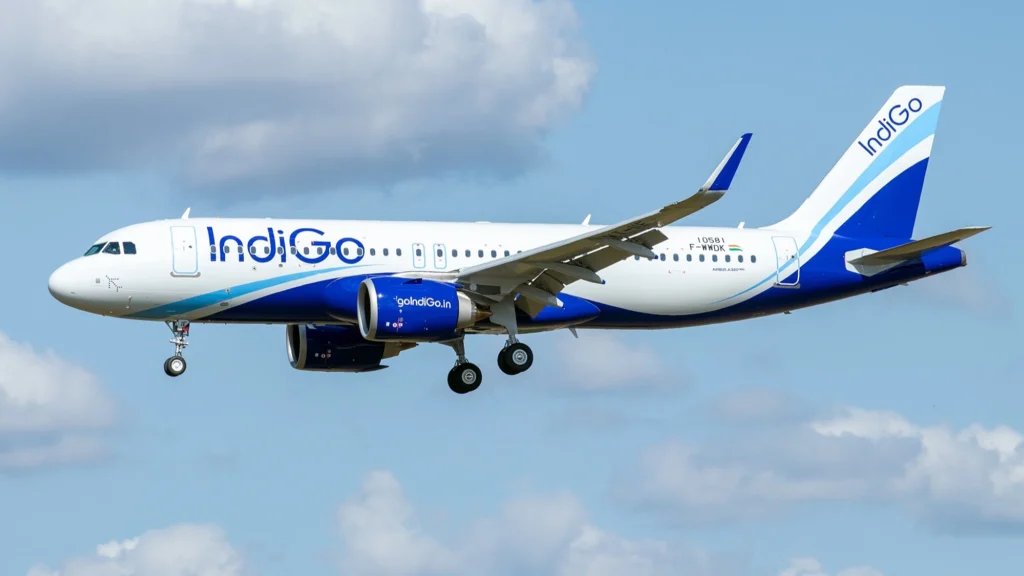 Photo: Eurospot
Photo: EurospotAirlines Market Share
India’s domestic air passenger traffic rose by 5.3% in October 2024, driven by growing demand for efficient travel options.
IndiGo (6E) maintained its dominance with a 63.3% market share, while Air India (AI) and Vistara (UK) held a combined share of 28.5%.
The rise in passenger traffic shows the increasing preference for air travel among Indians, fueled by affordability and efficiency.
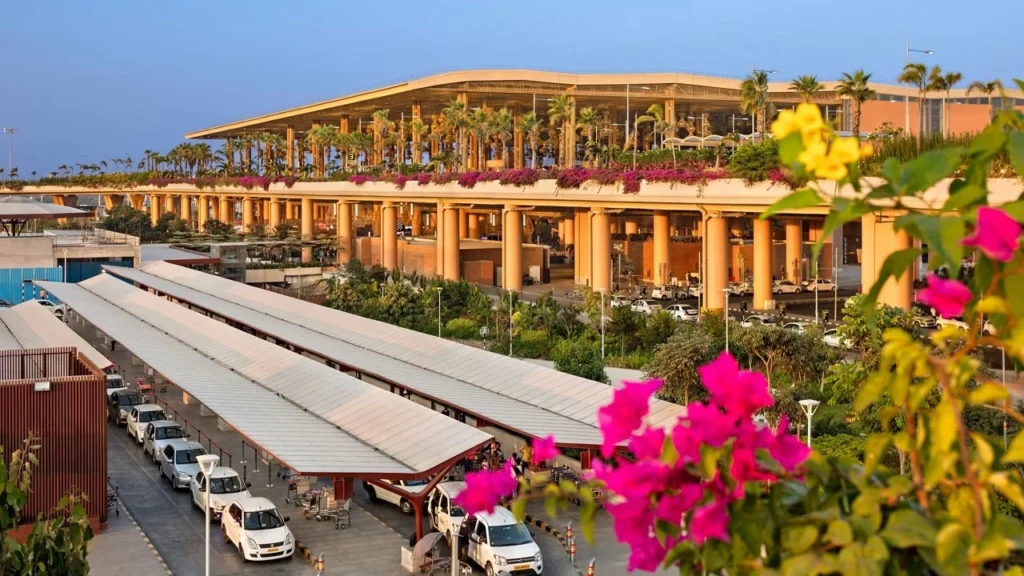 Photo: Air India
Photo: Air IndiaInfrastructure Advancements
India built new airports and improved existing ones to support more flights. Bengaluru’s Kempegowda Airport (BLR) added domestic routes and better terminals.
Ayodhya (AYJ) opened its new international airport. Airports installed better security systems and baggage handling equipment.
Regional airports now accommodate bigger planes and more passengers. The government improving airports to make India a global flight hub.
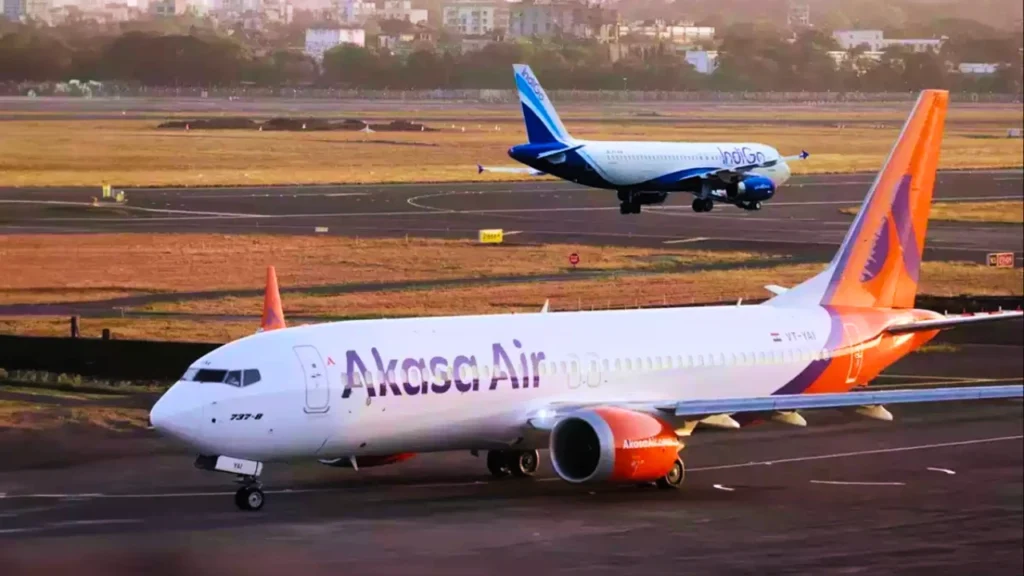 Photo: X User
Photo: X UserBottom Line
The addition of over 100 new routes by Indian Airlines in 2024 reflects India’s determination to strengthen its aviation sector.
This growth has transformed the nation into a compelling global aviation hub, fostering connectivity, economic progress, and regional development.
With infrastructure investments and rising passenger traffic, the future of Indian aviation appears bright and dynamic.
Stay tuned with us. Further, follow us on social media for the latest updates.
Join us on Telegram Group for the Latest Aviation Updates. Subsequently, follow us on Google News
Air India, IndiGo Objects to Reduced Night Flying for its Pilots
The post Indian Airlines Added Over 100 New Routes in 2024 appeared first on Aviation A2Z.

 11 miesięcy temu
11 miesięcy temu












